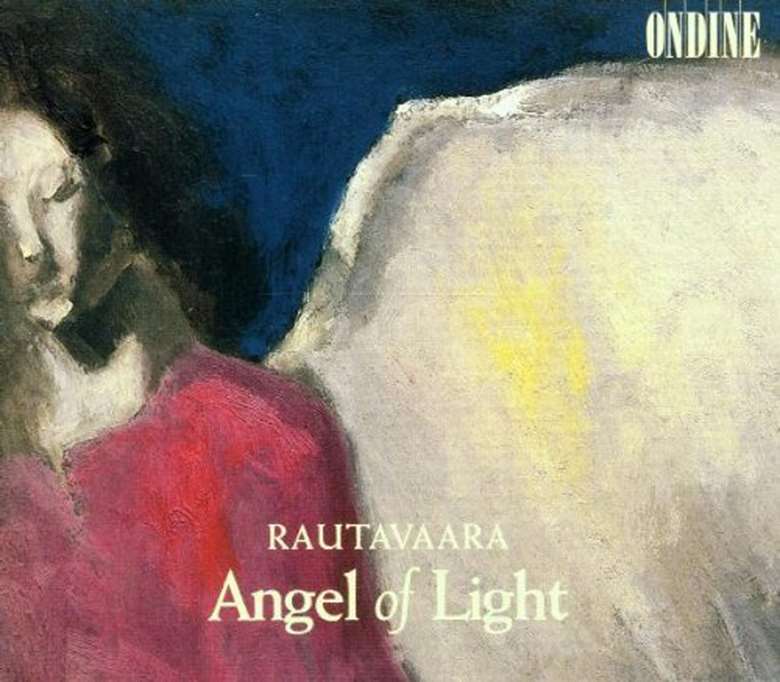Guided by Angels: an interview with Einojuhani Rautavaara
Gramophone
Thursday, July 28, 2016
A classic interview with the Finnish composer, by Hilary Finch (Gramophone, June 1996)

The sea is frozen over, a triangle of white light glimpsed through snow-covered pines from the top floor windows of an old wooden house on Kulosaari, one of the many islands flung out into the Baltic as the greater Helsinki. On the white wall of Einojuhani Rautavaara's study a fading scrap of paper, recently unearthed from old boxes and packing cases, is newly framed and glints in the low afternoon sun.
'RADIOGRAM. RADIO AUSTRIA. 18 May 1955. Sibelius suggests to you the Koussevitzky Scholarship for study in Tanglewood US six weeks from July 1 STOP possibility to continue at Juilliard for a year STOP answer soon if able to come and see us.' Black and white photos on the piano of Rautavaara with Olga Koussevitzky, Rautavaara with Roger Sessions, Rautavaara with Boris Blacher testify to his response. And hand-written manuscript sketches of a new television opera propped up on the music stand bear witness to the fact that, 40 years and a lifetime's state bursary later, Rautavaara is still going strong.
This month sees the release of the Seventh Symphony of a composer who has written in just about every language, every form and every genre possible: chamber works for specific players; operas, including the great triptych of Thomas, Marjatta and The Sampo inspired by Finland's mythic epic, the Kalevala; and symphonies which form a microcosm of his composing life.
The first two were neo-classical; the third romantic, Brucknerian; the fourth strictly and thoroughly serial; the fifth a single-movement synthesis of all that had gone before; the sixth a series of van Gogh-inspired tableaux reworking the themes of his opera Vincent. With the exception of the first, each one begins with a sense of sound growing out of a void, approaching as if from another sphere. And within the last 20 years, Rautavaara has been writing works with titles such as Angels and Visitations, Angel of Dusk, Playground for Angels - and the organ concerto Annunciations which is coupled on this latest disc with the new symphony, Angel of Light. What are we to make of all this?
'I've been accused of being a mystic!' says Rautavaara with a knowing smile. 'But all I can say is that I have experienced that there are very exact things in music which nevertheless cannot be expressed in words. I am conscious of a level of existence outside our own, beyond the cognitive. When a work comes out right, and I'm pleased with it, I feel as if it could not possibly have been myself who made it. I am the midwife, not the mother. And if I'm asked if I'm religious, I can only think of the words of the German philosopher, Schleiermacher, who said "Religiosität ist Sinn und Geschmack für das Unendliche" – a feeling for infinity.
'I have to say that I do find these titles embarrassing sometimes, but I feel I have to use them because it was actually the words which gave me the music! And those words are always in English. Strange!' In 1978 when Rautavaara was commissioned to write a double-bass concerto, he was flying back from the States in the evening and saw from his aeroplane window a huge cloud with the rays of the sun coming through it. 'The words "Angel of Dusk" just came into my mind. And they kept repeating, over and over, like a mantra, with a real energy radiating from the words. Until the energy turned into music...'
It's not difficult to hear a similar process at work in the Seventh Symphony. The first movement alone, with its serene waves of string writing, flecked by bells and rising to a fugitive hymn-like motif which reaches its apotheosis in the finale, is the very stuff of which musical new-age dreams could be made. The language, though, is derived from serial principles. 'That is the discipline behind it, yes.' The single most powerful influence on Rautavaara remains his teacher Wladimir Vogel, a strict and pedantic Schoenbergian who gave the young Rautavaara a technique, shorn of any talk of philosophy and aesthetics, just when he needed it. Although he has spent his life amalgamating and synthesizing, 'finding out everything there was in Western music', Rautavaara still believes that 'the vocabulary of music in this century is the 12 temperate tones, used more or less equally'.
'But the listener should not be aware of this discipline. One's own language grows from precisely how one organizes the tones. Music must be more than purely intellectually rewarding...'
On the desk, manuscript paper piles up with more neat stacks of tiny, black tone-rows. These are the character sketches for Rautavaara's new opera on the life of the Finnish poet Alexsis Kivi, commissioned by Jorma Hynninen for performance at the 1997 Savonlinna Festival in the unique underground cave/auditorium at nearby Retretti. And, arching over the words and the notes, the huge wing of an Angel, beating into the air from another picture frame. A title like Angel of Light is just too much of a good thing for any businessman to resist; and Reijo Kiilunen, shrewd founder and Managing Director of the Ondine label who more or less own Rautavaara, set up a competition for a suitable angel painting. This one, very much in the style of Odilon Redon, is busy winging its way off the presses in the form of posters and postcards. 'Yes, it's a fine angel,' says Rautavaara, 'and it's available in a number or colour combinations. But I must say' (glancing towards bookshelves lined with Blake, Eco, Sagan, Jung) 'mine is more of a Rainer Maria Rilke angel. A go-between, an emissary, yes, but schrecklich, terrifying...'







